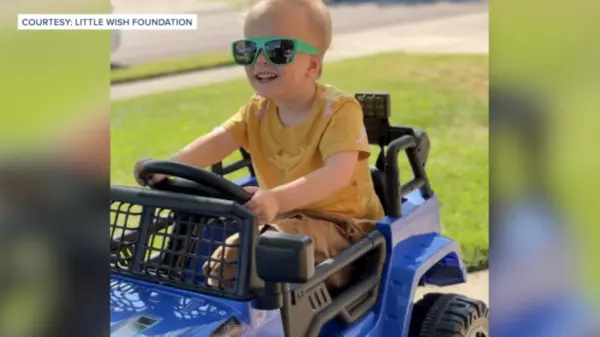UPDATE: President Donald Trump is set to make a significant announcement today at 4:00 PM ET that ties the use of Tylenol during pregnancy to an increased risk of autism. This controversial claim comes amid urgent calls from scientists for caution, stating that current research on the subject remains inconclusive.
Trump’s announcement, described as “one of the most important news conferences I’ll ever have,” has raised eyebrows due to its implications. The administration’s decision to explore the potential link between acetaminophen, the active ingredient in Tylenol, and autism has been spearheaded by Robert F. Kennedy Jr., known for his anti-vaccine stance and controversial health theories. Earlier this year, Kennedy promised to reveal findings about autism’s causes by September 2025.
The announcement will take place in front of a sizable crowd at a memorial for slain activist Charlie Kirk. Trump stated, “I think we found an answer to autism, how about that?” as he teased the forthcoming details.
Medical authorities, including the American College of Obstetricians and Gynecologists, have already expressed concern over the administration’s focus. They classify Tylenol as one of the safest pain relief options during pregnancy, although they caution against long-term use. In contrast, ibuprofen, another common pain reliever, is deemed unsafe for pregnant individuals, particularly after the 20th week.
Press Secretary Karoline Leavitt has urged the media to reserve judgment until the announcement is made, stating, “Everyone in this room needs to tone down the judgment before you even hear what people are going to say.” However, skepticism persists regarding the potential implications of the announcement, especially as reports suggest it may also cover a possible treatment for autism involving the drug leucovorin, which lacks sufficient research backing.
A recent literature review hinted at a possible connection between Tylenol exposure and autism, but other studies have reached opposing conclusions. David Mandell, a psychiatric epidemiologist at the University of Pennsylvania, noted that the risks associated with Tylenol during pregnancy appear to be lower than those posed by uncontrolled infections. He emphasized the need for extensive research to understand the genetic and environmental factors influencing autism.
Experts have criticized the administration’s approach as “highly irresponsible,” warning that claims linking Tylenol and autism could foster confusion and fear among expectant parents. The Coalition of Autism Scientists has publicly condemned the announcement, asserting that the science surrounding autism is “far more nuanced and uncertain” than what the administration suggests.
As the clock ticks down to the announcement, the health community watches closely, anticipating a significant impact on public perception and policy regarding pregnancy and autism. Stay tuned for live updates as this developing story unfolds.





































































